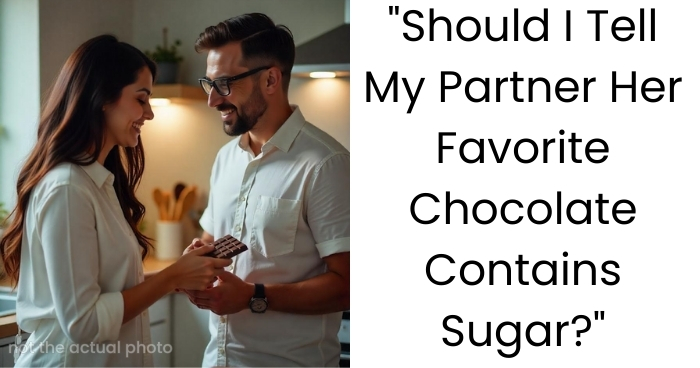Man has moral dilemma over sugar-free partner continuing to eat chocolate, ‘she doesn’t know.’ AITA?
But it is still less clear cut when the consequences seem minor, and that is the point at which we find ourselves with this story, a classic but subtle possible conflict between two moral principles: telling the truth, and trying to keep a loved one happy. OP shares their partner’s eating habits, specifically her decision to not eat added sugar. While she’s careful, OP discovers she has erroneously assumed things like the dark chocolate shavings she loves are sugar-free. So now OP wrestles about whether revealing they know the truth or not, especially because what used to be a mistake is kind of innocuous and even the alternative sugar-free chocolate is probably not a good idea for OP due to dietary restrictions.
The anger intensifies because OP sees that her mate enjoys his “special blend” coffee and yogurt with the shavings on top. OP is truly supportive of her being sugar-free, even accommodating her preferences in the meals they share together. The internal struggle is if not telling him is betrayal or just a harmless omission considering the circumstances. I suspect many readers imagine themselves in OPs position, trying to find the gray area between “I want to lie here for the greater good but is this really fair to my partner”
Read for more info Reddit
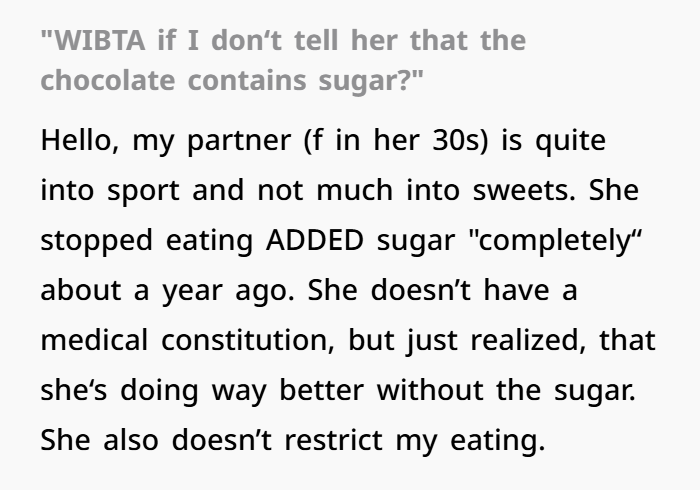
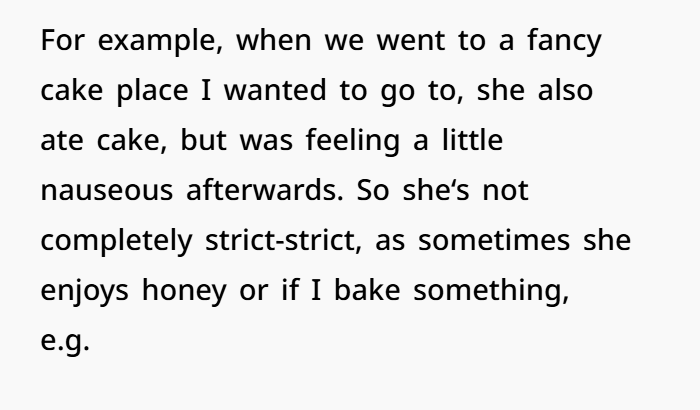

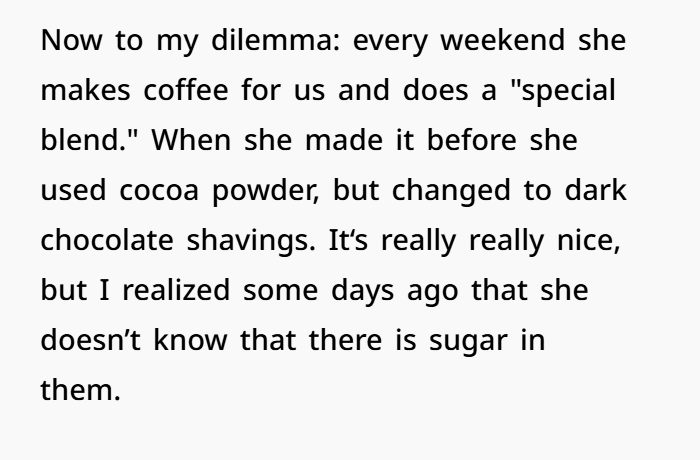

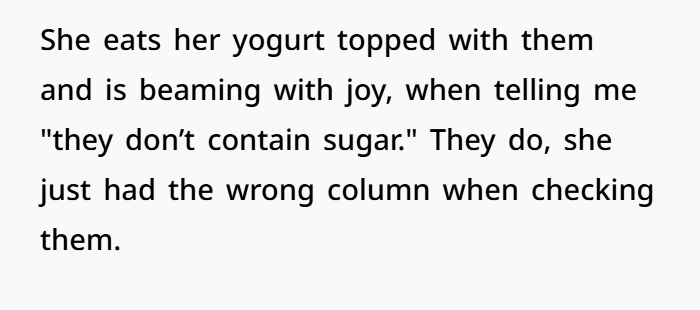
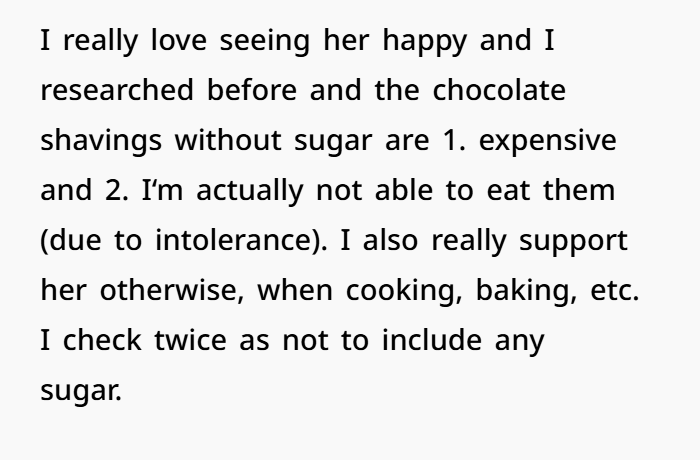
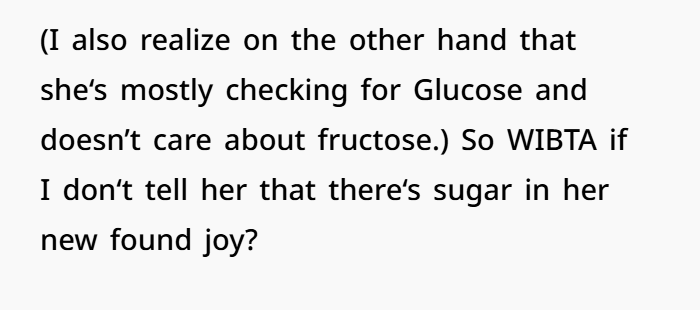
Later, OP edited the post to include
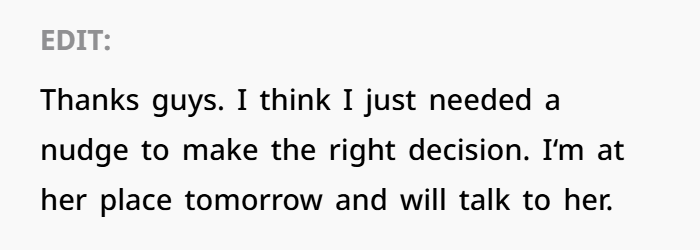
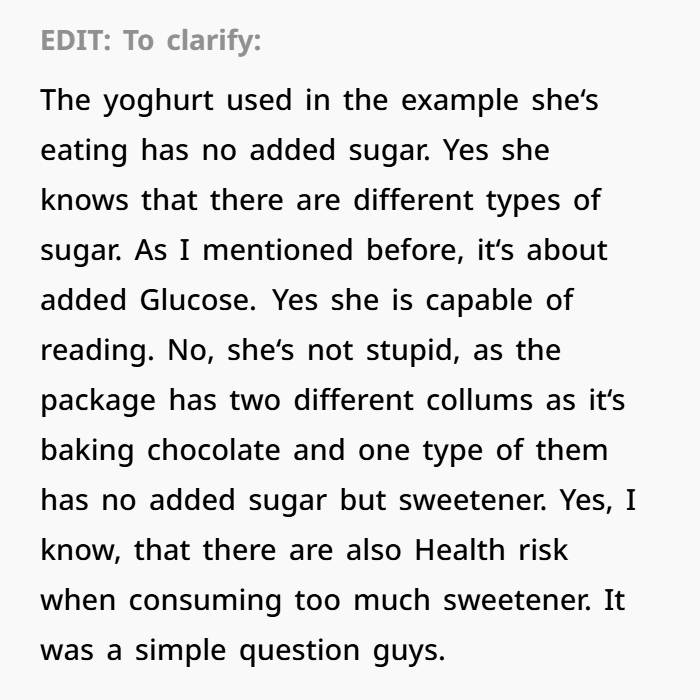
Psychological Theories and Morality behind Dietary Misinformation
Lying about what you eat is integral to the food choices you make, even if those choices seem small. Research from Journal of Social and Personal Relationships suggests that openness particularly on food issues leads to long-term relational wellbeing (Journal of Social and Personal Relationships, 2018). The dietary habits of your partner are usually deeply personal reasons; health conscious choices, ethical consideration, or mental health condition. Even if it is indirectly, OP takes away their partner’s ability to choose what is good for them by not being honest; even if the consequences of the lie may seem small.
Of course, OP is not the first food ethics issue and as such, it brings to light an old conflict: a = wish to make these fractions more convenient and cheap for consumers, something that leaves little space for honesty, or if we go further, equality? The cost and the fact that OP is apparently intolerant to sugar-free chocolate is indeed a practical issue for OP, but not for the ethical necessity of communication. In addition, psychological studies show that people come to value frankness given enough time even when such information is uncomfortable (American Psychological Association, 2015). Honestly, the reaction of OPs partner in the update confirms this—she only wished OP would have told the truth much earlier.
This situation also opens the door to a very interesting behavioral psychological phenomenon: cognitive dissonance. OP’s partner obviously cares about added sugars but willingly makes compromises (honey/Occasional cake) This mental nimbleness may have even included the chocolate slivers, had she known how much sugar was in them. More than that, it confused the hell out of OP (making them worried sick over who knows what, god!). In a lot of cases, the most ethical and least stressful solution is honest communication (with sensitivity).
Here’s what top commenters had to say about this one:
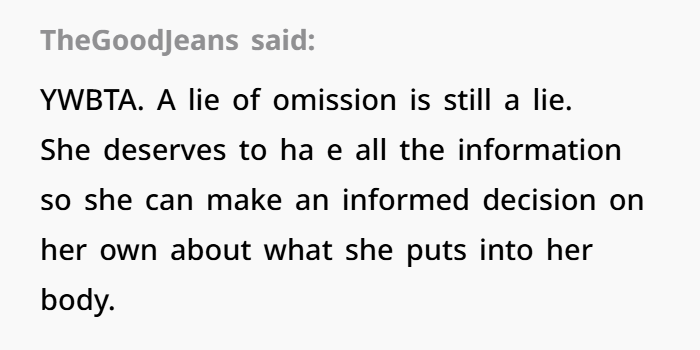
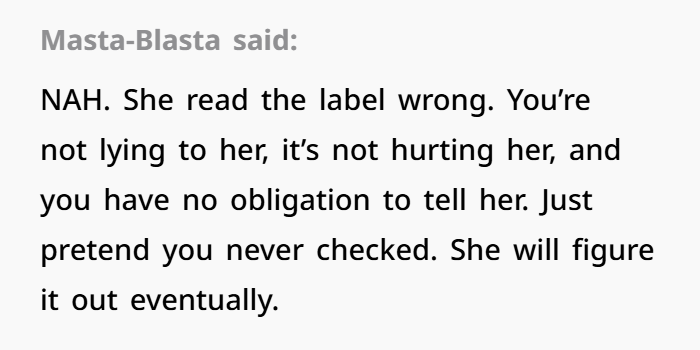
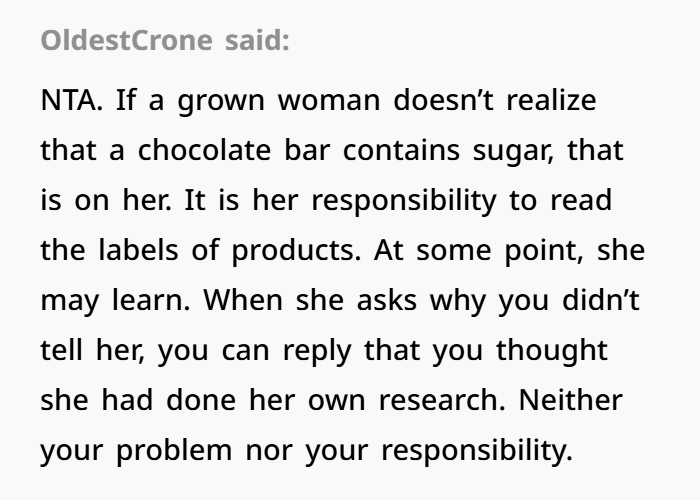
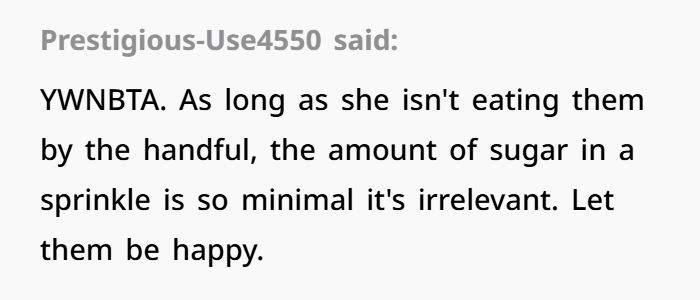
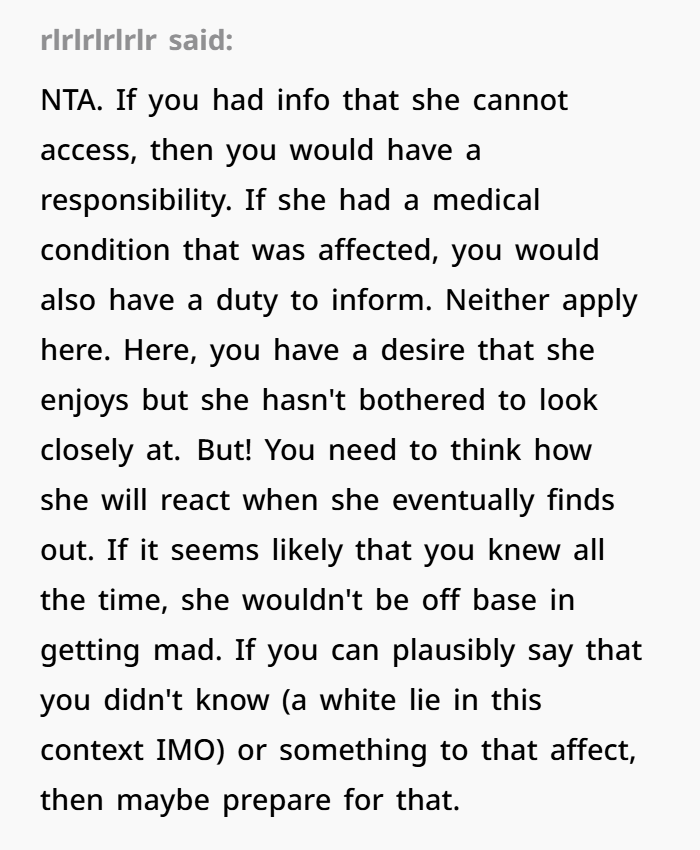

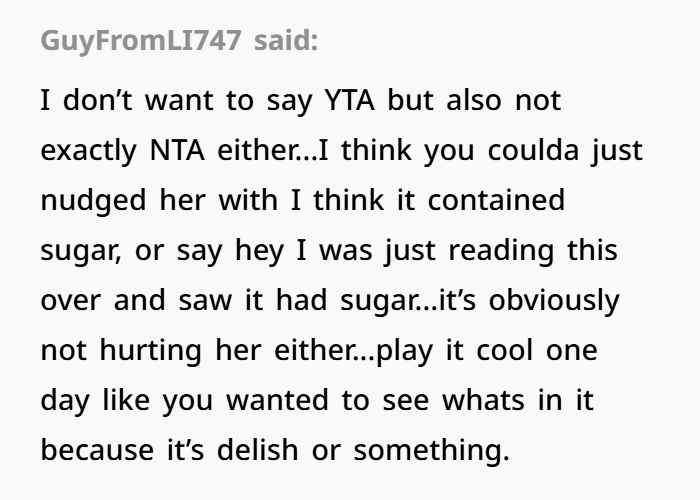
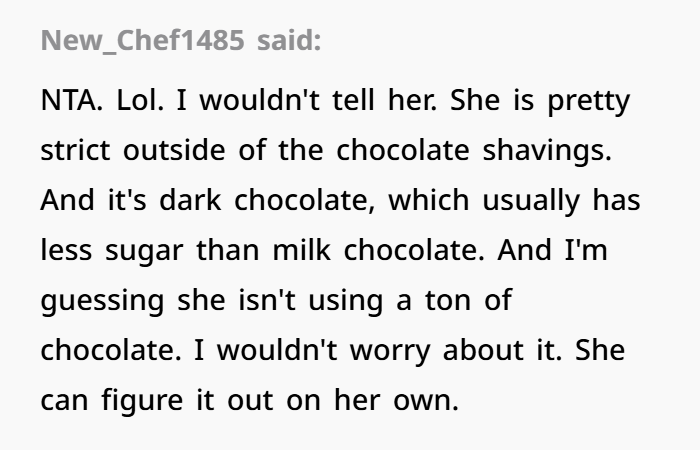
In the end, OP confessed — but at least we all learned that trust and compromise are critical parts of any relationship. The light response from her partner shows how small quarrels can be solved by simply talking. It is a reminder that if you lie about the little things then you do not deserve trust and it only leads to guilt or being played for a fool. If OP’s experience is anything to go by, it just goes to show how facing dilemmas can actually bolster relationships.

